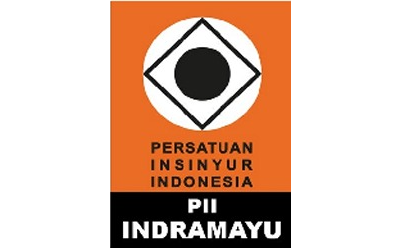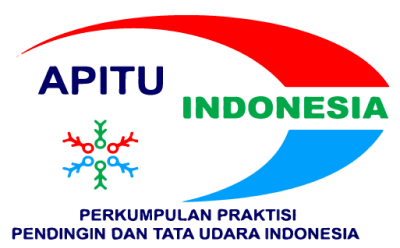RANCANG BANGUN SISTEM KONTROL DAN MONITORING PH, SUHU AIR DAN TDS PADA SISTEM AKUAPONIK BERBASIS INTERNET OF THINGS (IOT)
Abstract
Full Text:
PDFReferences
Abbasi, Rabiya, Pablo Martinez, and Rafiq Ahmad. 2021. “An Ontology Model to Support the Automated Design of Aquaponic Grow Beds.” Procedia CIRP 100: 55–60.
Chukkapalli, Sai Sree Laya et al. 2020. “Ontologies and Artificial Intelligence Systems for the Cooperative Smart Farming Ecosystem.” IEEE Access 8: 164045–64.
Dhal, Sambandh Bhusan, Muthukumar Bagavathiannan, Ulisses Braga-Neto, and Stavros Kalafatis. 2022. “Nutrient Optimization for Plant Growth in Aquaponic Irrigation Using Machine Learning for Small Training Datasets.” Artificial Intelligence in Agriculture 6: 68–76.
Garrido-Momparler, Víctor, and Miguel Peris. 2022. “Smart Sensors in Environmental/Water Quality Monitoring Using IoT and Cloud Services.” Trends in Environmental Analytical Chemistry 35: e00173.
Haryanto et al. 2019. “Smart Aquaponic System Based Internet of Things (IoT).” In Journal of Physics: Conference Series, Institute of Physics Publishing.
Khaoula, Taji, Rachida Ait Abdelouahid, Ibtissame Ezzahoui, and Abdelaziz Marzak. 2021a. “Architecture Design of Monitoring and Controlling of IoT-Based Aquaponics System Powered by Solar Energy.” In Procedia Computer Science, Elsevier B.V., 493–98.
———. 2021b. “Architecture Design of Monitoring and Controlling of IoT-Based Aquaponics System Powered by Solar Energy.” Procedia Computer Science 191: 493–98.
Kralik, Brittany et al. 2022. “From Water to Table: A Multidisciplinary Approach Comparing Fish from Aquaponics with Traditional Production Methods.” Aquaculture 552: 737953.
Kumar Pothula, Anand, Zhao Zhang, and Renfu Lu. 2023. “Evaluation of a New Apple In-Field Sorting System for Fruit Singulation, Rotation and Imaging.” Computers and Electronics in Agriculture 208.
Kyaw, Thu Ya, and Andrew Keong Ng. 2017. “Smart Aquaponics System for Urban Farming.” Energy Procedia 143: 342–47.
Megawati, Dini et al. 2020. “Rancang Bangun Sistem Monitoring PH Dan Suhu Air Pada Akuaponik Berbasis Internet of Thing (IoT).” TELKA - Jurnal Telekomunikasi, Elektronika, Komputasi dan Kontrol 6(2): 124–37. https://telka.ee.uinsgd.ac.id/index.php/TELKA/article/view/telka.v6n2.124-137 (August 1, 2023).
Nie, Peng, Michele Roccotelli, Maria Pia Fanti, and Zhiwu Li. 2022. “Fuzzy Rule-Based Models for Home Energy Consumption Prediction.” Energy Reports 8: 9279–89.
Pasha, Adrian K. et al. 2018. “System Design of Controlling and Monitoring on Aquaponic Based on Internet of Things.” Proceeding of 2018 4th International Conference on Wireless and Telematics, ICWT 2018.
Paul, Sanjoy Kumar et al. 2022. “An Advanced Decision-Making Model for Evaluating Manufacturing Plant Locations Using Fuzzy Inference System.” Expert Systems with Applications 191.
Podder, Amit Kumer et al. 2021. “IoT Based Smart Agrotech System for Verification of Urban Farming Parameters.” Microprocessors and Microsystems 82.
Trevathan, Jarrod et al. 2021. “An IoT General-Purpose Sensor Board for Enabling Remote Aquatic Environmental Monitoring.” Internet of Things 16: 100429.
Umar, Ubaidillah, Dimas Adiputra, and Helmy Widyantara. 2020. “Pengembangan Sistem Kendali Kuantitas Air Pada Tanaman Hidroponik Berbasis Internet of Thing (IoT).” MULTINETICS 6(2): 110–16. https://jurnal.pnj.ac.id/index.php/multinetics/article/view/3447 (July 31, 2023).
Umar, Ubaidillah, Tri Arief Sardjono, and Hendra Kusuma. 2023. “The Ontology Model for Selecting Quality Melons Uses Hidden Semantic Data Based on Melon Knowledge Domains.” 13th IEEE Symposium on Computer Applications and Industrial Electronics, ISCAIE 2023: 95–100.
Vernandhes, Wanda, N. S. Salahuddin, A. Kowanda, and Sri Poernomo Sari. 2018a. “Smart Aquaponic with Monitoring and Control System Based on IoT.” Proceedings of the 2nd International Conference on Informatics and Computing, ICIC 2017 2018-January: 1–6.
———. 2018b. “Smart Aquaponic with Monitoring and Control System Based on IoT.” Proceedings of the 2nd International Conference on Informatics and Computing, ICIC 2017 2018-January: 1–6.
Wang, Liping, and Emmanuel Iddio. 2022. “Energy Performance Evaluation and Modeling for an Indoor Farming Facility.” Sustainable Energy Technologies and Assessments 52: 102240.
Xiang, Zhongming et al. 2022. “Rule Base Construction Method of Section out of Limit Disposal Strategy for Thermal Power Unit Equipment Fault.” Energy Reports 8: 13220–25.
Zhao, Fang, Gang Li, Hongyue Guo, and Lidong Wang. 2022. “Rule-Based Models via the Axiomatic Fuzzy Set Clustering and Their Granular Aggregation.” Applied Soft Computing 130: 109692.
DOI: https://doi.org/10.31884/jtt.v10i1.557
Refbacks
- There are currently no refbacks.
Copyright (c) 2024 JTT (Jurnal Teknologi Terapan)

This work is licensed under a Creative Commons Attribution-NonCommercial-NoDerivatives 4.0 International License.
 Creative Common Attribution-ShareAlike 4.0 International (CC BY-SA 4.0)
Creative Common Attribution-ShareAlike 4.0 International (CC BY-SA 4.0)













